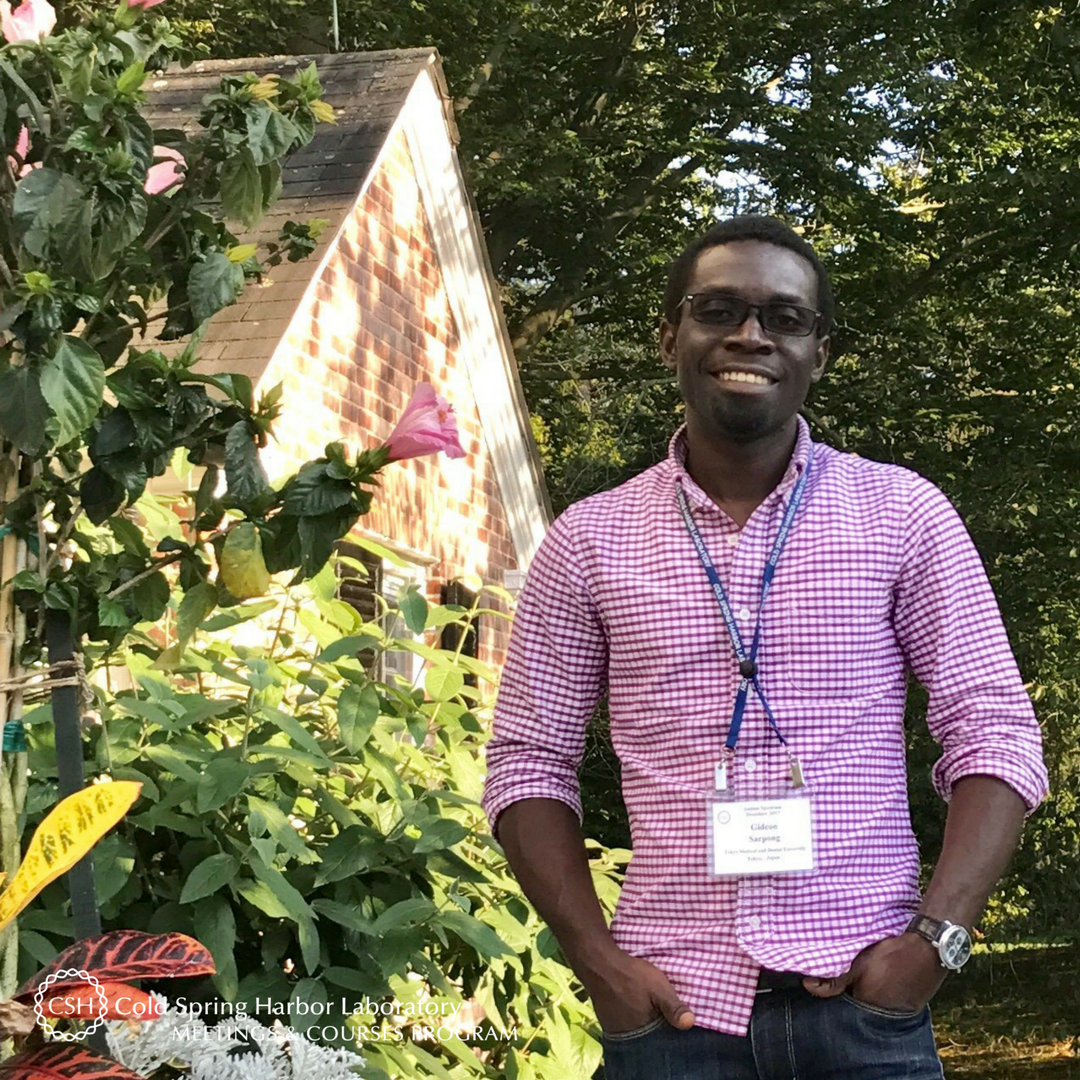Meet Gideon Sarpong of the Tokyo Medical and Dental University (Japan) where he is a graduate student in the Systems Neurophysiology lab headed by Izumi Sugihara. Gideon made his first visit to the Laboratory for the Workshop on Autism Spectrum Disorder. The workshop runs until this Sunday, and Gideon filled us in on what attracted him to the workshop and he has learned so far.
What are your research interests? What are you working on?
My research involves the cerebellar system, which is important in adaptation in the reflex behaviors and movement executions of animals. It is also one of the areas where morphological abnormality is most often found in individuals with Autism Spectrum Disorders (ASD).
Our work aims to understand the structure and function of the neuronal circuitry that underlies particular neural systems by using neurophysiological, neuroanatomical, and genetic approaches.
Was there something specific about the Workshop on Autism Spectrum Disorder that drew you to apply for it?
Yes. In addition to learning about current etiological theories and hypotheses, I have a strong interest in understanding the neurobiology of ASD from different perspectives including human genetics and developmental neurobiology, which have been explored in the course thus far. The course also provides the opportunity to meet many potential collaborators working in this field.
What is your key takeaway from the Workshop?
I have been able to examine and appreciate the dimensions of Autism Spectrum Disorders on various levels, which include the implications of circuits and systems in ASD, genetic approaches, neuroimaging methods, as well as current cellular neuroanatomical challenges and findings. Furthermore, and highly rewarding, the instructors and other invited speakers offered key and practical advice on grants and career development.
If someone curious in attending your Workshop asked you for feedback or advice on it, what would you tell him/her?
There is no better place for such a course than at CSHL. The workshops are small by design and ensure an excellent instructor-to-student ratio. Moreover, the instructors provide a stimulating, supportive, and an engaging teaching environment. In the words of Isaac Newton, “If I have seen a little further than others, it is by standing upon the shoulders of giants."
What do you like most about your time at CSHL?
I had the opportunity to meet and interact with an exceptional faculty, peers and colleagues of different backgrounds, nationalities, ages and aspirations. Aside the numerous informal discussions, there are attractive recreation on the beautiful campus of the Banbury Center, including a beach and a pool, not forgetting the entertainment room in the basement of Robertson House.
Gideon received a stipend from the Nancy Lurie Marks Family Foundation to cover a portion of his course tuition. On behalf of Gideon, thank you to the Nancy Lurie Marks Family Foundation for supporting and enabling our young scientists to attend a CSHL course where they expand their skills, knowledge, and network.
Thank you to Gideon for being this week's featured visitor. To meet other featured scientists - and discover the wide range of science that takes part in a CSHL meeting or course – go here.

